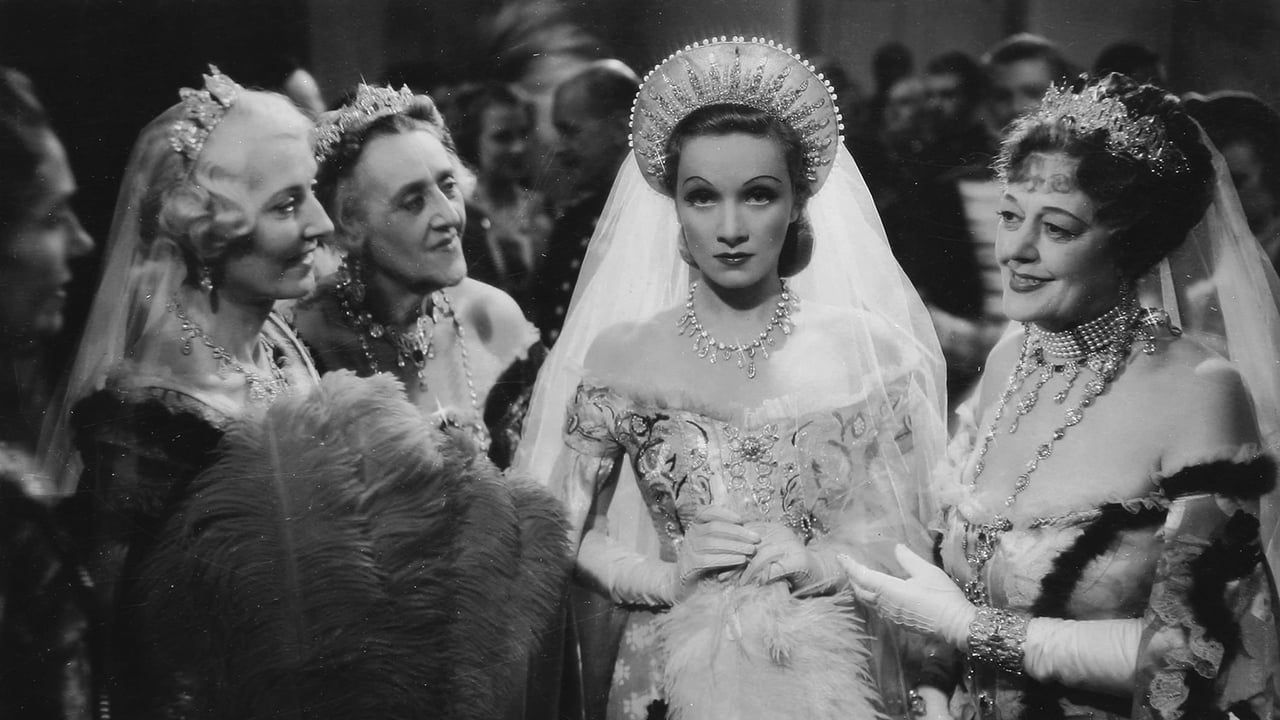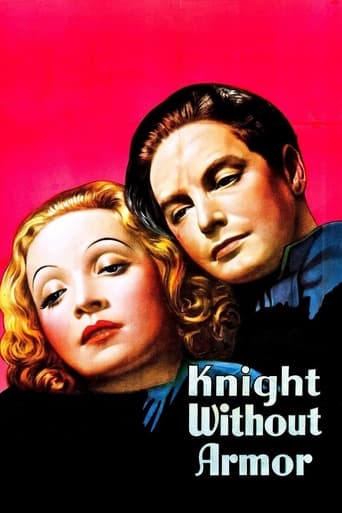



Boring, over-political, tech fuzed mess
I am only giving this movie a 1 for the great cast, though I can't imagine what any of them were thinking. This movie was horrible
View MoreThe acting is good, and the firecracker script has some excellent ideas.
View MoreIt's the kind of movie you'll want to see a second time with someone who hasn't seen it yet, to remember what it was like to watch it for the first time.
View MoreThis is a pretty crazy old movie, which used to appear regularly on television in the late 1950's.It would be easy to make fun of the overwrought plotting in the film and the rather chirpy, "Boy's Owns" performance of Robert Donat as A. J. Fothergill, which sees him stiff upper lipping his way through labour camps, mass migrations and firing squads. However the film has its moments and although shot entirely in pre WW2 Britain, it captures a sense of the chaos and dislocation of the Russian Revolution.A. J. Fothergill, an English Journalist in Russia, ends up working for the British Secret Service at the outbreak of the revolution. Posing as a Bolshevik he falls in love with Russian aristocrat Alexandra Adraxine (Marlene Dietrich) who is fleeing for her life. As they head to safety they encounter characters on both sides of the civil war: reds and whites.It is in the subplots where the film captures a sense of a world turned upside down. The couple meet people unable to grasp the new role history has trust on them; the deranged station master announcing the arrival of non-existent trains or the commissar who falls for Marlene's character at first sight.If ever a film captured the mystique of Marlene Dietrich it is this one. In every scene, whether in full regal glory at a ball, trudging through the mud or snow, even dressed as a man, key lighting accentuates those cheekbones and casts the little butterfly shadow under her nose. She glows in every scene.The British tone to the whole thing takes some of getting used to and is more obvious than in Lean's "Doctor Zhivago" where the cultural transplanting is subtler. In both films, an intense love story plays out against the same turbulent historical backdrop."Knight" views the communists and the anti-communists in equally grim terms with summary executions all over the place. The rattle of the machine guns used in the executions is a motif throughout the film.It's a bit creaky nowadays, and is unlikely to be on anyone's top ten, however "Knight Without Armour" has an indefinable mood, and a couple of scenes that stay in the memory.
View MoreRobert Donat is a British spy who is a "Knight Without Armor" in this 1937 Alexander Korda film, also starring Marlene Dietrich as a widowed Countess. Donat is A.J. Fothergill, a Brit in Russia who is recruited to spy on the revolutionary movement in 1913 because of his knowledge of the language. After being imprisoned in Siberia, he's released due to the 1917 revolution. As an assistant to a commissar he met in Siberia, he is assigned to the takeover of the estate of Countess Alexandra (Dietrich). He has to take her to Petrograd, and ultimately, they fall in love. He then attempts to get her out of the country.A very good and absorbing film with Donat and the beautiful Dietrich giving wonderful performances as they trudge through Mother Russia. Be she in peasant clothes, babushka, nightgown, wedding gown, or evening gown, Dietrich looks fabulous, makeup intact. The most stunning scene takes place in the beginning when she wakes up in her gorgeous bedroom and rings for her maid. No maid. She gets up and searches the house. Nobody. She goes outside in her long white flowing nightgown, hair loose. Nothing. She spots her maid and calls to her. The maid runs. Dietrich turns around to see the entire horizon covered with soldiers coming at her. Fabulous.There are many wonderful scenes, including a crowd stopping a train, that really capture the feeling of the chaos, panic, and dirt of war.Robert Donat is marvelous, elegant of voice, sometimes a character actor and sometimes, with a wavy lock of hair on his forehead and kissing Dietrich, a very effective romantic leading man.Very exciting film, and you really care about these characters. Highly recommended.
View MoreAlthough the plot may seem thin I consider it a very absorbing film - lots of drama and action. It is a movie of its time so modern expectations are out of place. Marlene Dietrich shines in this one of course but I view it because Robert Donat is there also. It's my opinion that their screen kiss is one of the finest on record, very touching and tender. All in all, well worth the popcorn!
View MoreIn "Knight Without Armour" (***) Robert Donat plays a British journalist in 1914 revolutionary Russia who is persuaded by his government to go undercover as a "red." The catch is that if he's caught the British home office will disavow any knowledge of him. He is caught and spends two years in Siberia before the death of Czar Nicholas and the fall of the Russian nobility free him. He then becomes the right hand man for an influential revolutionary commissar. Needless to say, his heart isn't really in it and when he gets an opportunity to escort a rich and pampered Russian countess back to headquarters in Petrograd for questioning he decides to help them both escape from the country. They are then tossed about like footballs from one side to the other. The plot is really rather ingenious, although you get the impression that the filmaker's hearts are more on the side of the corrupt "white" establishment if for no other reason that it never misses an occasion for glamorous star close-ups of Marlene D. in extravagantly opulent costumes. Even a young red official is so smitten with her he sacrifices himself in order to save her and Donat from one nasty predicament. I suppose the film wanted to avoid appearing to be too pro-communist, but in the process it comes down a little too much on the side of "noblesse oblige." The film ends a bit abruptly with Donat and Dietrich seemingly a long way from being out of the woods yet, but all-in-all it's beautifully produced and holds the interest pretty much all the way through. Good scene: Dietrich awakening one morning alone in her palace to discover that her entire household of servants has fled. If you can find a good print of this unusual oldie, it's worth seeing.
View More